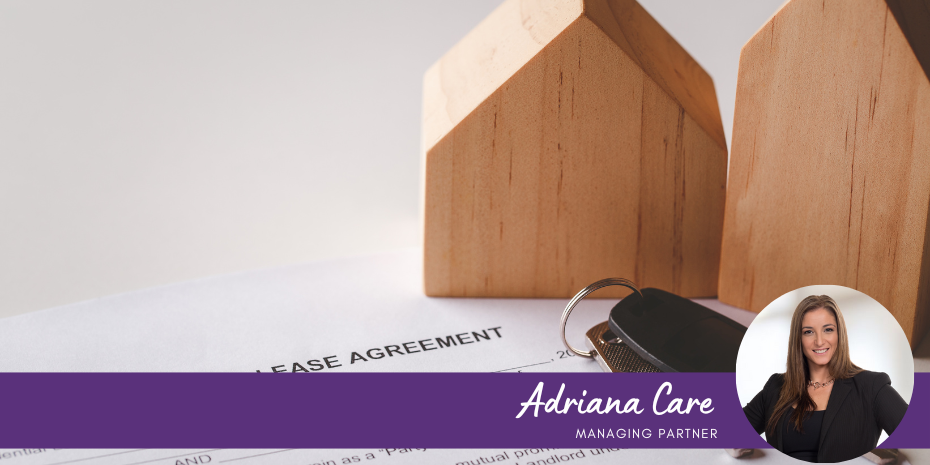KEY TAKE-OUTS:
- What is stamp duty in Queensland?
- How is stamp duty calculated in Queensland?
- What are the types of concessions to stamp duty available?
Are you looking to purchase property in Queensland, but unsure of what stamp duty is and how much you will need to pay? This blog outlines what stamp duty is and the concessions and possible exemptions available.
We all know it can be overwhelming trying to consider all costs involved in purchasing a residential property. It is important to know what obligations you have as a purchaser to pay stamp duty, as well as any concessions that may be available to you.
When buying residential property in Queensland, as with all other states and territories, you will have an obligation to pay stamp duty, also known as ‘Transfer duty’. The amount of stamp duty payable depends on the purchase price, as well as what the intended use of the property will be. You may be eligible for reduced stamp duty if you plan to occupy your home rather than purchasing for investment or if it is your first home. Exemptions may also apply which will be explained below.
What is stamp duty?
Stamp duty, or also known as transfer duty, is a tax charged by the state government that is applied on all property transactions including sales or transfers of property to a new owner.
Stamp duty is payable by the purchaser or transferee in the transaction to the state government
How is this duty calculated in QLD?
In Queensland, the amount of transfer duty payable is dependent on the value of the property. It is calculated using a ‘sliding scale’, which essentially means the higher the property price, the more stamp duty you will be required to pay.
You can input the property details into a calculator found on the QLD Government website which will give you an indication of how much stamp duty will be payable on your purchase. This can help you prepare for the costs involved in purchasing a residential property.
This can be accessed here.
What affects the transfer duty amount?
Certain factors can influence an increase or decrease in the transfer duty amount that is payable as outlined on the Queensland Governments website such as:
- The amount of property transferred (for example, if only 50% of the property is transferred)
- A home concession applies to the transaction but includes land not intended for residential purposes
- An exemption applies
- Multiple transactions are part of the same arrangement which can be assessed as 1 transaction.
- Multiple people have interest in a property and each party is paying a different rate (some may pay a full rate of duty, while others may pay the concessional rate).
What is the general rate of transfer duty in Queensland?
The following rates in the table below are the general rates of transfer duty. These typically apply to properties purchased for investment purposes or those that do not fall under any of the concessions. The standard transfer duty is payable as stipulated below:
| Purchase price/value | Transfer duty rate |
| Not more than $5,000 | Nil |
| More than $5,000 up to $75,000 | $1.50 for each $100, or part of $100, over $5,000 |
| $75,000 to $540,000 | $1,050 plus $3.50 for each $100, or part of $100, over $75,000 |
| $540,000 to $1,000,000 | $17,325 plus $4.50 for each $100, or part of $100, over $540,000 |
| More than $1,000,000 | $38,025 plus $5.75 for each $100, or part of $100, over $1,000,000 |
It is important to note, if acquiring residential land in Queensland as a foreign person, an additional duty of 7% applies. You may be eligible for concessions outlined below, but the additional duty does apply.
What concessions to transfer duty are available in Queensland?
When you purchase a residence or vacant land on which you intend to build your first home or intend to reside, you may be eligible to claim a concession that reduces the transfer duty amount you have to pay.
There are three concession types;
- Home concession – If you’re purchasing a residence that you intend to live in and occupy as your home, this does not have to be your first home.
You must live in this property as your principal place of residence within one year of settlement, and must not sell or lease any part of the property before you move in.
The home concession rate applies to the first $350,000 of the value of the residence and then general transfer duty rates apply to the balance of the value.
The rates for the home concession are outlined in the following table:
| Purchase price/value | Home concession rate |
| Not more than $350,000 | $1.00 for each $100 or part of $100 |
| More than $350,000 to $540,000 | $3,500 + $3.50 for every $100, or part of $100, over $350,000 |
| $540,000 to $1,000,000 | $10,150 + $4.50 for every $100, or part of $100, over $540,000 |
| More than $1,000,000 | $30,850 + $5.75 for every $100, or part of $100, over $1,000,000 |
- First home concession – if you’re purchasing a residence that you intend to occupy as your first home you may be able to claim this concession.
You can claim this on properties valued under $550,000 in conjunction with the home concession mentioned above. The duty is calculated on the above home concession amount, minus the additional concession amount noted in the table below.
| Purchase price/value | First home concession (deduct this from the amount calculated with home concession rate) |
| Up to $504,999.99 | $8,750 |
| $505,000 to $509,999.99 | $7,875 |
| $510,000 to $514,999.99 | $7,000 |
| $515,000 to $519,999.99 | $6,125 |
| $520,000 to $524,999.99 | $5,250 |
| $525,000 to $529,999.99 | $4,375 |
| $530,000 to $534,999.99 | $3,500 |
| $535,000 to $539,999.99 | $2,625 |
| $540,000 to $544,999.99 | $1,750 |
| $545,000 to $549,999.99 | $875 |
| $550,000 or more | Nil |
- First home vacant land concession – if you’re purchasing vacant land where you intend to build and occupy your first home, you may be able to apply for this concession. This duty is calculated differently from the above two concessions. It applies to land valued at less than $400,000.
It is important to note that no duty is payable on land valued at less than $250,000 and any land valued over $400,000 is not eligible for a concession.
With reference to the table below, this concession is calculated by deducting
the concession amount in the table, from the standard transfer duty rate.
| Dutiable value | Concession (deduct this amount from the transfer duty rate) |
| Not more than $250,000 | 100% of transfer duty |
| More than $250,000 to $259,999.99 | $7,175 |
| $260,000 to $269,999.99 | $6,700 |
| $270,000 to $279,999.99 | $6,225 |
| $280,000 to $289,999.99 | $5,750 |
| $290,000 to $299,999.99 | $5,275 |
| $300,000 to $309,999.99 | $4,800 |
| $310,000 to $319,999.99 | $4,325 |
| $320,000 to $329,999.99 | $3,850 |
| $330,000 to $339,999.99 | $3,375 |
| $340,000 to $349,999.99 | $2,900 |
| $350,000 to $359,999.99 | $2,425 |
| $360,000 to $369,999.99 | $1,950 |
| $370,000 to $379,999.99 | $1,475 |
| $380,000 to $389,999.99 | $1,000 |
| $390,000 to $399,999.99 | $525 |
| $400,000 or more | No concession |
Unfortunately, there are no additional concessions or exemptions for seniors cards or pension cardholders.
To qualify for any of the abovementioned concessions (in addition to some other requirements specific to the concession you are applying for) you must be legally acquiring the property as an individual.
Companies are not eligible for these concessions except when they are acting as a corporate trustee, in which further criteria will apply for trustees to be eligible for the concessions. Further details are outlined on the Queensland Government website.
What are the exemptions to stamp duty?
Some exemptions apply to paying stamp duty, These include;
- when an owner of a property passes away
- If the transfer of property is subject to marriage or divorce transactions or family law orders
- if a charitable institution is involved, or when the transaction involves transferring interest in property to a spouse
- changing the tenancy or
- if the property is a ‘manufactured home’ defined under the Manufactured Homes (Residential Parks) Act 2003.
For further information please don’t hesitate to contact:
This blog is merely general and non-specific information on the subject matter and is not and should not be considered or relied on as legal advice. Coutts is not responsible for any cost, expense, loss or liability whatsoever to this blog, including all or any reliance on this blog or use or application of this blog by you.



